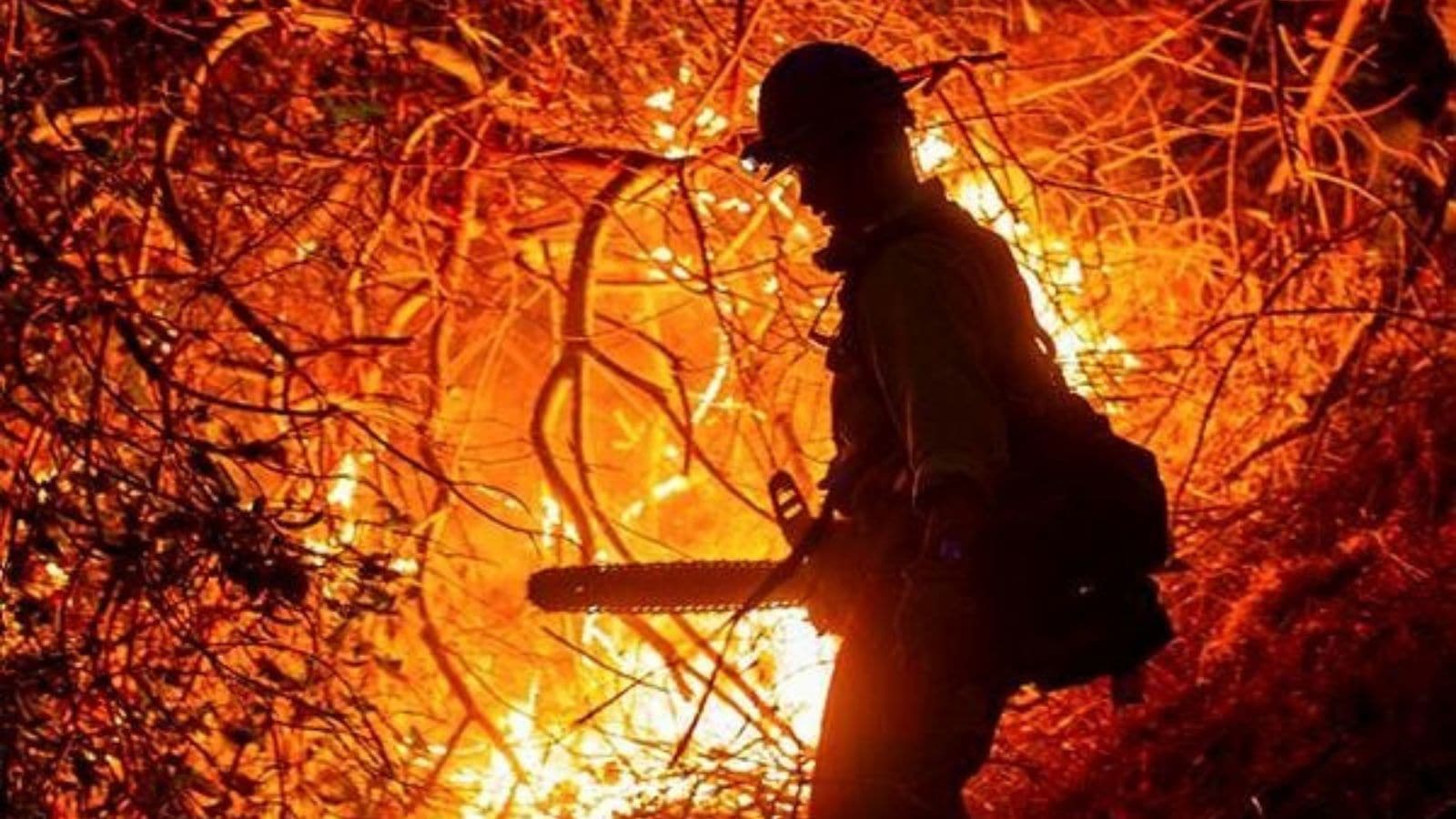 |
|
The recent California wildfires have resulted in a catastrophic loss of life and property, highlighting the devastating impact of extreme weather events exacerbated by climate change. The fires, which began on January 6th, were fueled by a combination of exceptionally dry conditions and strong Santa Ana winds. These winds, while a natural part of California's climate, were particularly intense this year, creating a perfect storm for rapid fire spread and making containment efforts incredibly challenging. The resulting inferno consumed over 40,000 acres of land, destroying thousands of homes and claiming the lives of 24 individuals. The scale of the destruction is immense, with the estimated cost of damage reaching a staggering $150 billion, making it one of the most expensive wildfires in US history. This economic impact extends beyond the immediate cost of property damage, impacting insurance companies, local businesses, and the overall economy of the affected regions.
The human cost of the wildfires is equally profound. The loss of 24 lives represents a tragic toll, with many individuals losing their homes, belongings, and loved ones. The evacuations of approximately 100,000 people highlight the scale of the emergency, forcing many to leave their homes with little more than the clothes on their backs. The emotional trauma experienced by survivors is immeasurable, leaving lasting scars on their lives and communities. Beyond the immediate physical and emotional impacts, the wildfires have also led to secondary challenges, including concerns about air quality and potential health issues arising from smoke inhalation. The long-term recovery process will require significant resources, both financial and emotional support, to rebuild homes, restore infrastructure, and address the complex social and economic consequences of this disaster.
The wildfires have also brought renewed attention to the urgent need to address climate change. Experts have pointed to climate change as a key factor in increasing the intensity and frequency of wildfires. The exceptionally dry conditions this winter, compared to previous years, demonstrate the impact of a changing climate. The prolonged drought and rising temperatures create a tinderbox environment, making wildfires more likely and more devastating. This event serves as a stark reminder of the far-reaching consequences of inaction on climate change, affecting not just California, but communities across the globe who are increasingly vulnerable to extreme weather events. The sheer scale of destruction and loss of life underscores the urgent need for proactive measures to mitigate the effects of climate change and invest in disaster preparedness and mitigation strategies.
The response to the wildfires has involved a significant mobilization of resources from various levels of government and international partners. The White House has committed resources to assist in the firefighting efforts, highlighting the national scope of this disaster. Neighboring states, including Mexico and Canada, have also provided logistical support, demonstrating the collaborative nature of disaster response. However, the challenges posed by the fires have also brought criticisms and controversies. The accusations of incompetence in handling the fire, though highly controversial, reflect the frustrations and anxieties felt by many in the face of such a devastating disaster. In addition, there have been reports of looting and curfew violations, highlighting the need for effective law enforcement during emergency situations. Governor Newsom's swift action in deploying National Guard troops reflects a determined response to maintain order and protect the affected communities.
The wildfires have disproportionately impacted certain communities, particularly those with limited resources and vulnerable populations. This uneven impact underlines the social injustices that often accompany natural disasters. Those living in less affluent areas may face greater difficulties in evacuating, accessing support services, or rebuilding their lives after the fires. The celebrity homes destroyed, while drawing significant media attention, should not overshadow the far greater devastation experienced by ordinary individuals who have lost everything. Ultimately, the wildfires in California serve as a sobering reminder of the vulnerability of human societies to extreme weather events, the importance of effective disaster preparedness, and the urgent necessity to address the climate crisis that fuels such events. The long-term recovery will require a concerted and multifaceted effort, involving government agencies, non-profit organizations, and individual communities working together to rebuild lives, restore infrastructure, and learn from this devastating experience.
Source: 24 dead, thousands of homes scorched in California wildfires: 10 points
